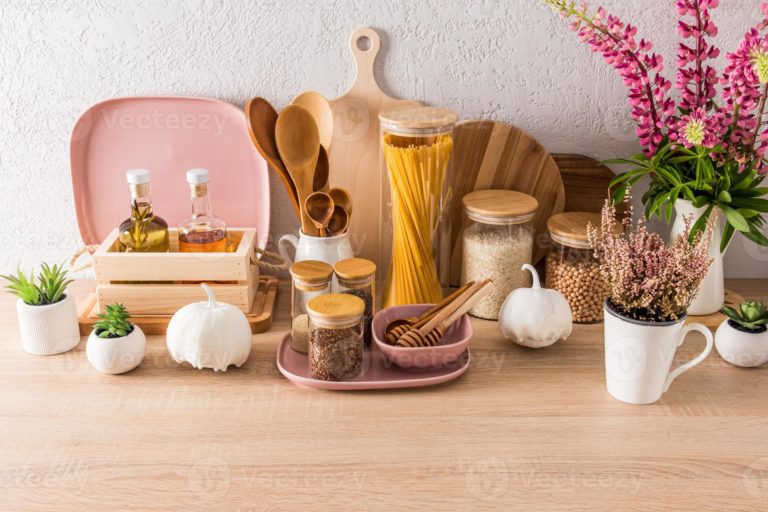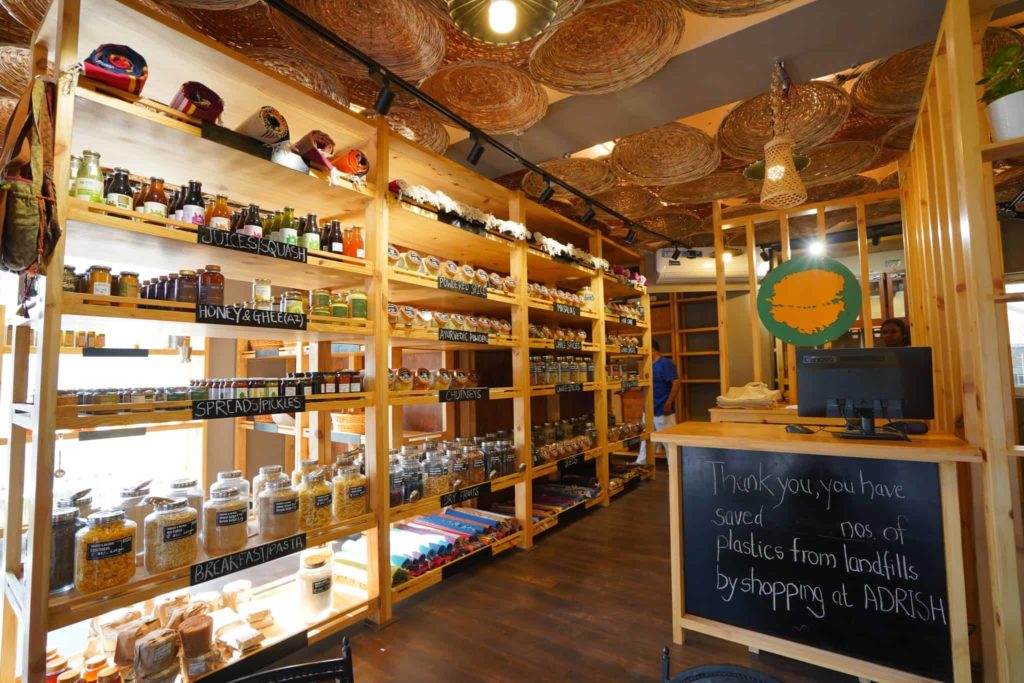- General
- Updated on June 14, 2025
Zero-Waste Kitchen Swaps: Eco-Friendly Alternatives to Everyday Indian Cooking Essentials

Adopting a zero-waste kitchen isn’t just a global trend—it’s a practical approach to reducing plastic pollution and saving money, especially in Indian households where cooking happens daily. By swapping out single-use items for sustainable alternatives, you can minimize your environmental footprint while maintaining the rich culinary traditions you love. This guide highlights simple, effective zero-waste swaps tailored to Indian cooking essentials, helping you build a greener kitchen one replacement at a time.
Why Zero-Waste Matters in Indian Kitchens
India’s bustling markets and street vendors produce significant plastic packaging waste—from single-serve spice pouches to disposable shopping bags. Zero-waste kitchens counter this by focusing on reuse, refill, and compost, rather than single-use disposables. Beyond reducing landfill contributions, these swaps often improve food freshness and quality while supporting local artisans and refill stores.

1. Economic and Environmental Benefits
Investing in durable kitchenware pays off over time. A one-time purchase of glass storage jars or stainless-steel containers replaces hundreds of plastic bags. Composting vegetable scraps enriches your garden soil, reducing fertilizer costs. Collectively, small swaps yield big savings and a lighter ecological footprint.
2. Aligning Tradition with Sustainability
Many traditional Indian practices—such as carrying cloth bags to bazaars or straining buttermilk in muslin—already embrace minimal waste. Zero-waste swaps build on these customs, modernizing them with new materials and technologies without sacrificing heritage.
Pantry Swaps: From Plastic Packs to Bulk & Refillable Options
The heart of any Indian kitchen is its pantry. Grains, pulses, spices, and oils form the backbone of everyday meals. Here’s how to rejig your pantry for zero-waste living.
1. Bulk Buying Grains and Pulses
Swap: 1-kg plastic packs of rice or dal
For: Refillable sacks and glass jars
Visiting local wholesale grocers or zero-waste stores lets you purchase rice, lentils, and beans in bulk—often at discounted rates. Bring your own canvas bags or reusable cloth pouches, weigh them, and refill as needed. At home, transfer to airtight glass or stainless-steel containers to maintain freshness and guard against pests.
2. Replacing Single-Use Spice Sachets
Swap: Pre-packed spice sachets
For: Spice tins and grinders
Indian cooking relies on a variety of spices—turmeric, cumin, coriander, and more. Purchase whole spices in bulk and store them in small metal tins. Invest in a tabletop spice grinder or mortar and pestle to grind small batches on demand, preserving potency and reducing waste.
3. Eco-Friendly Oils and Ghee Storage
Swap: Disposable plastic containers of cooking oil or ghee
For: Refillable glass bottles and stainless-steel jars
Some health-food stores and organic co-ops offer oil refills in glass containers. You can also strain homemade ghee into wide-mouth glass jars. Glass prevents leaching chemicals and can be reused indefinitely.
Food Preparation and Storage Tools
Zero-waste kitchens flourish when utensils and wraps are equally sustainable. Replace your plastic-dependent tools with natural or reusable alternatives.
1. Beeswax Wraps Instead of Plastic Film
Swap: Cling wrap and foil
For: Beeswax or vegan wax wraps
Beeswax wraps, made from cotton coated in beeswax, jojoba oil, and tree resin, are ideal for covering dough, wrapping vegetables, or sealing bowls. They’re washable, moldable with hand heat, and last up to a year. For vegan households, soy- or candelilla-wax wraps offer a plant-based alternative.
2. Cloth Produce Bags Over Plastic
Swap: Thin plastic produce bags
For: Organic cotton or mesh bags
Bring lightweight cloth bags to markets for fruits and vegetables. They’re transparent enough for quick cashier weighing and versatile for storage—no more crumpled plastic at the bottom of your tote.
3. Bamboo and Stainless-Steel Utensils
Swap: Plastic spatulas and ladles
For: Bamboo, wood, or stainless-steel tools
Wooden spatulas, ladles, and rolling pins have long been part of Indian kitchens. Bamboo options are naturally antimicrobial, while stainless-steel spatulas and tongs resist heat and last decades. Opt for solid wood boards over composite plastic cutting boards.
Waste Valorization: Composting and Creative Reuse
Even with careful shopping, kitchens generate organic scraps: peels, stems, and trimmings. Zero-waste strategies ensure nothing goes to landfill.
1. Kitchen Composting Setups
Swap: Trash-bound vegetable waste
For: Countertop compost bins
A simple countertop bin with a carbon filter lets you collect peels, spent tea leaves, and coffee grounds. Empty it regularly into a balcony or community compost pile. If space is tight, invest in a bokashi system that ferments scraps in a sealed bucket with bran, producing nutrient-rich leachate.
2. DIY Vegetable Stock from Scraps
Collect onion skins, potato peels, carrot ends, and coriander stems in a freezer bag. When full, simmer with water and spices to create a flavorful vegetable broth. Strain and reuse the solids in compost, reducing both waste and grocery bills on stock cubes.
Zero-Waste Meal Planning and Shopping Habits
Beyond individual swaps, shifting how you plan and shop underpins long-term zero-waste success.
1. Pre-Planning Menus and Portions
Writing a weekly menu and grocery list avoids impulse buys and over-purchasing. Estimate servings realistically to prevent spoilage, and use leftovers creatively—rice becomes vegetable pulao, roti becomes wraps, and yogurt turns into raita or buttermilk.
2. Supporting Local Bulk and Refill Stores
Seek out eco-markets and zero-waste shops in your city—Mumbai’s FabIndia, Bangalore’s The Green Path, or Delhi’s local health co-ops. By consolidating trips and buying in bulk, you reduce travel emissions and packaging waste simultaneously.
Building a Community of Sustainability
Zero-waste living thrives on shared knowledge and resources. Engaging with neighbors, friends, and online groups accelerates adoption.
1. Swap Meets and Tool Libraries
Host or attend “swap meets” where participants exchange jars, cloth bags, or unused kitchen gadgets. Neighborhood tool libraries for items like pressure cookers or food processors reduce duplicate purchases and build community trust.
2. Sharing Recipes and Success Stories
Start a WhatsApp or social media group focused on zero-waste cooking. Share before-and-after photos of pantry transformations, encourage bulk-buy hauls, and troubleshoot challenges together. Collective momentum helps sustain new habits.
Getting Started: Small Steps, Big Impact
Transitioning to a zero-waste kitchen doesn’t require overnight changes. Begin with one easy swap—like carrying a cloth bag to the market—then gradually replace plastic storage and disposable wraps. Measure progress not by perfection but by reduction in your monthly trash output. Over time, these small steps accumulate into significant environmental and financial savings.
Setting Achievable Goals
- Month 1: Replace single-use spoons and forks with stainless steel.
- Month 2: Switch to bulk spices in reusable containers.
- Month 3: Implement a kitchen compost bin for scraps.
Celebrate milestones and adjust targets as you become more comfortable.
Read Also : 7 Essential Skincare Tips to Achieve Korean Glass Skin This Summer
Conclusion
Zero-waste kitchen swaps align seamlessly with India’s food traditions and resourcefulness. By embracing bulk refills, reusable storage, composting, and mindful shopping, you transform your kitchen into an eco-friendly haven. Each swap—from beeswax wraps to cloth produce bags—demonstrates your commitment to sustainability, setting a powerful example for family, friends, and your wider community. Start small, stay consistent, and watch your zero-waste kitchen flourish, one swap at a time.
Join the discussion
Related Articles
No results available
ResetTrending Articles


- General
- Updated on March 2, 2026


- General
- Updated on February 26, 2026


- General
- Updated on February 23, 2026


- General
- Updated on February 20, 2026


- General
- Updated on February 18, 2026


- General
- Updated on February 17, 2026


- General
- Updated on February 10, 2026


- General
- Updated on February 14, 2026


- General
- Updated on February 7, 2026


- General
- Updated on February 5, 2026
No results available
Reset


